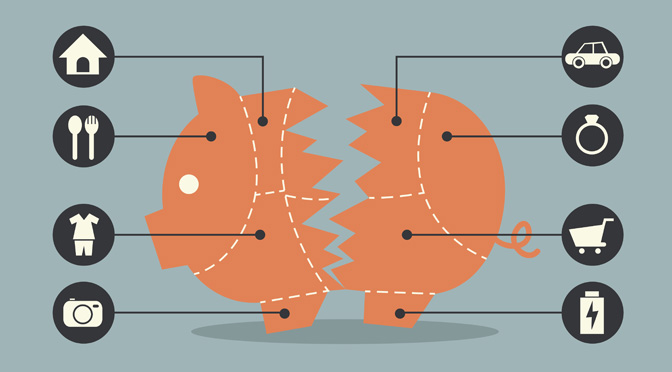
When the economy & market seem volatile, focus on financial basics: Savings
No matter what is happening on the outside, your financial future is all about the basics: reduce spending, save more and know that time is on your side. If your financial house is in order, you’ll be in better shape five months AND five years from now, regardless of how things








